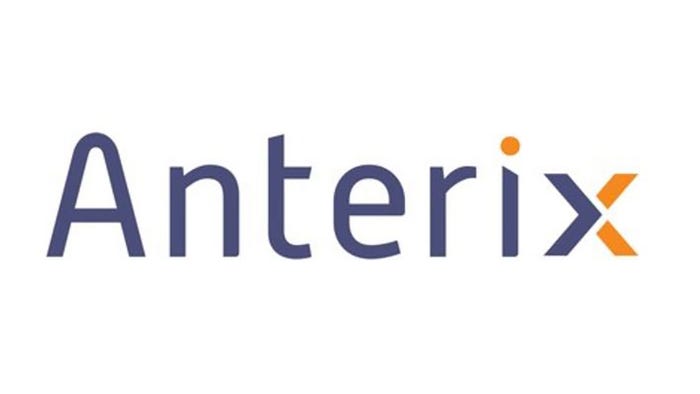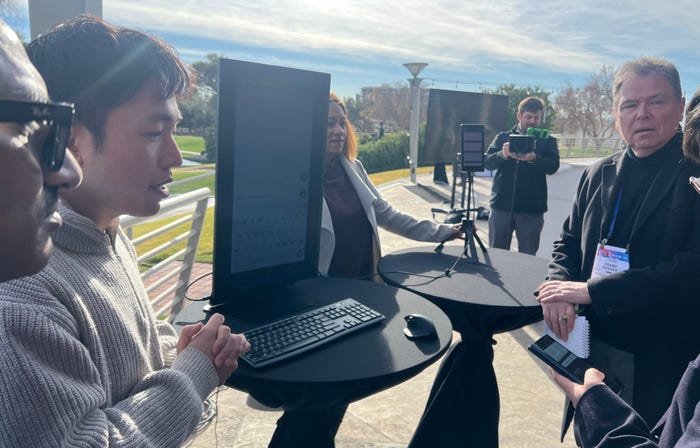Motorola Solutions seeks contempt finding, global injunction against Hytera for not paying royaltyMotorola Solutions seeks contempt finding, global injunction against Hytera for not paying royalty

Motorola Solutions asked a federal judge to find Hytera Communications in contempt of court for refusing to make ordered royalty payment and to prohibit the China-based manufacturer from selling land-mobile-radio (LMR) equipment globally, according to a legal filing posted Wednesday.
Hytera Communications did not make its first royalty payment as scheduled on July 31 to compensate Motorola Solutions for the use of stolen trade secrets and copyrighted software in much of the China-based company’s DMR product portfolio. The first royalty payment—an amount not disclosed but estimated in previous legal filings to be at least $45 million—was supposed to reflect $80.32 per applicable terminal radio and $378.16 per applicable repeater sold by Hytera during the past three years.
Hytera Communications agreed to the royalty terms, which were included in a July 5 order from U.S. Federal District Court Judge Charles Norgle—an action cited as the “royalty order” by Motorola Solutions attorneys in yesterday filing seeking a contempt-of-court ruling. In fact, Norgle cited the existence of the ongoing royalty and the $543.7 million in damages as the primary reason he did not grant Motorola Solutions’ request for a global injunction that would have blocked Hytera from selling the affected DMR products worldwide.
But Hytera Communications has not secured a bond or taken other steps to pay the court judgment, and it has missed its first royalty payment.
“Under the royalty order, Hytera was required to make a payment (based on Hytera’s DMR radio sales from July 1, 2019, to June 30, 2022) into an escrow account by July 31, 2022. Hytera made no such payment and has confirmed it has no intention to do so,” according to the Motorola Solutions filing. “Motorola’s repeatedly-expressed concerns that Hytera would never pay any of what the Court orders it to, despite having $1 billion in publicly reported net assets, have now come to fruition.”
Motorola Solutions CEO Greg Brown echoed this sentiment.
“I’m kind of not surprised that they [Hytera Communications] missed … the court order deadline to pay cash into escrow by July 31,” Brown said during yesterday’s conference call with analysts about the company’s second-quarter performance. “They’ve had a pattern of denied, deflect, distract and no action. They owe us about $680 million all in.”
Hytera did not respond to a request for a statement from IWCE’s Urgent Communications in time to be included in this article.
After missing the deadline for making the royalty payment, Hytera Communications this week asked Norgle if it could put Hytera stock in escrow instead—a proposal that does not appeal to Motorola Solutions.
“Hytera’s post-hoc attempt to excuse its blatant non-compliance also revealed that other claims it previously made to this Court to avoid turnover were blatantly false, as have been so many other representations that Hytera has made in these legal proceedings to avoid taking responsibility for its ongoing illegal conduct,” the Motorola Solutions filing states.
“At bottom, Hytera has shown a complete, willful disregard for this court’s authority and rulings. Unless Hytera is held in contempt and subjected to harsh contempt sanctions, there is no doubt that Hytera will continue to make a mockery of these legal proceedings by continuing to simply decide not to comply with this Court’s orders whenever it chooses.”
Under the court-ordered royalty plan, Hytera Communications is required to double its royalty payment for missing a deadline entirely.
In addition to this financial penalty, Motorola Solutions proposes that Norgle hold Hytera in contempt and grant an injunction prohibiting Hytera “from selling any two-way radio equipment worldwide—regardless of whether it is subject to the royalty order—unless and until all of Hytera’s past-due royalties are fully paid into escrow.”
Motorola Solutions previously sought an global injunction against Hytera selling equipment, but those requests were limited to Hytera DMR products that were identified as using the trade secrets and copyrighted software that were stolen from Motorola Solutions more than a decade ago.
Finally, Motorola Solutions’ legal filing urges Norgle to order that Hytera Communications “have its assets in the United States sequestered and seized, including Hytera US Inc.”
Hytera US is the U.S. subsidiary of Hytera Communications that was established last year to assume the assets of Hytera’s two previous U.S. subsidiaries that declared bankruptcy in May 2020, just a couple of months after Norgle affirmed the unanimous jury finding against Hytera. While the two bankrupt Hytera subsidiaries were defendants in the original lawsuit, the new Hytera US entity has not been a party to the proceedings to date.
Hytera Communications’ reasoning for not making the royalty payment is not clear, because that portion of the China-based company’s legal filing earlier this week was largely redacted. However, it is clear that Hytera did not make the required cash payment and offered an undisclosed amount of stock as an alternative.
Motorola Solutions’ attorneys described the Hytera stock proposal as “a woefully insufficient form of security to protect Motorola’s interests” in the most recent filing.
While the most obvious grounds for a potential contempt ruling against Hytera is the lack of a royalty payment, Motorola Solutions lawyers also noted that Hytera failed to adhere to transfer restrictions in Norgle’s citation order. Under this order, Hytera was prohibited from “making or allowing any transfer or other disposition of, or interfering with, any property not exempt from execution or garnishment belonging to the judgment debtor or to which the judgment debtor may be entitled,” according to the Motorola Solutions filing.
Motorola Solutions contends that Hytera Communications violated this court ruling when it sold its UK-based subsidiary Sepura for more than $180 million, according to the Motorola Solutions filing.
“Hytera has apparently become so comfortable with its strategy of violating this court’s orders and avoiding responsibility for its illegal conduct that it has decided to simply refuse to comply, apparently confident that it will get away with its disregard for this court’s authority,” the Motorola Solutions filing states. “But violation of two court orders can equal only one thing: contempt.”
Although Hytera Communications realized a cash influx from the sale, the China-based firm did not “use any of the $180 million it raised by selling the Sepura stock to make the required [royalty] payment,” according to the Motorola Solutions filing.
In a March 2020 judgment, Norgle affirmed a unanimous jury finding that Hytera should pay $764.6 million for its use of DMR trade secrets and copyrighted software developed by Motorola. Norgle reduced this initial award amount to $543.7 million in January, noting that collecting $220.9 million of the original ruling “would constitute a double recovery.”
But these damages only addressed Hytera sales of certain DMR products—those that used the stolen trade secrets and copyrighted software developed by Motorola—through June 30, 2019. Hytera has continued to sell these “covered products” even after this date, and the royalty payments established by Norgle are designed to compensate Motorola Solutions for Hytera sales of these products beginning on July 1, 2019.
Norgle’s order stipulates that Hytera’s first escrow payment will be due on July 31, when the China-based LMR firm is required to make a lump-sum payment of all royalties for the three-year period from July 1, 2019, to June 30, 2022.
In legal filings, Hytera has indicated that it may be unable to pay, noting that the company’s finances have been strained further by the fact that the U.S. Department of Justice (DoJ) in February indicted the China-based LMR firm of criminal conspiracy to steal DMR trade secrets from Motorola (before the company was renamed Motorola Solutions). This 21-count indictment against Hytera Communications was followed in April by the identification of seven individuals who participated in the alleged criminal conspiracy.
Both the civil and criminal cases against Hytera center around allegations that Hytera developed much of its successful DMR product line using trade secrets and copyrighted software that was stolen from Motorola Solutions about 14 years ago.
During the federal-court trial that began in November 2019, Hytera attorneys acknowledged that three former Motorola (the company had not yet changed its name to Motorola Solutions at the time) employees—Samuel Chia, Y.T. Kok and G.S. Kok—accessed more than 7,000 Motorola documents prior to each of them leaving and joining Hytera shortly in 2008. However, Hytera attorneys described the three engineers as “bad apples” who did not share with anyone else at Hytera that the DMR trade secrets and software were taken from Motorola.
All three of the former Motorola employees that were hired by Hytera invoked the Fifth Amendment when interviewed as part of the civil-suit proceedings. The DoJ indictment notes that there are individual defendants charged in the Hytera criminal conspiracy case, but all of those names were redacted from the publicly available version of the indictment.





